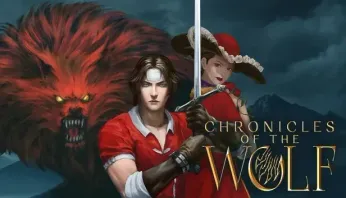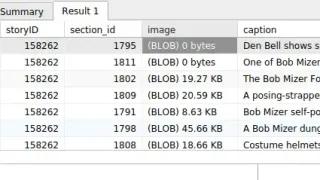
Jul 2
“Chronicles of the Wolf” Sets New Standard for Queer Representation in Gaming
READ TIME: 3 MIN.
A New Era for Queer Storytelling in Video Games
On June 19, 2025, “Chronicles of the Wolf” arrived on PlayStation 5, Nintendo Switch, Xbox, and PC, immediately sparking discussions about its thoughtfully integrated LGBTQ+ themes and characters. As one of the most prominent new releases this summer, the game stands out not just for its engaging gameplay and fantasy world, but for how it approaches queer representation as an intrinsic part of its narrative and character development .
Developed by a diverse team of writers and designers, “Chronicles of the Wolf” weaves LGBTQ+ identities into its story without relegating them to side plots or token representation. Instead, multiple key characters openly identify as queer, including nonbinary and transgender heroes whose identities are central to their arcs and not treated as incidental or purely for dramatic effect. The game’s creative director has emphasized that these characters were written in consultation with LGBTQ+ consultants to ensure authenticity and sensitivity .
Responding to Community Demand
The impact of “Chronicles of the Wolf” is amplified by the growing call for better representation within gaming. According to GLAAD’s latest industry report, less than 2% of console games include LGBTQ+ characters or storylines, despite the fact that nearly 20% of active gamers identify as LGBTQ+ and 70% of those gamers want to see more prominent queer storylines in games . “Chronicles of the Wolf” directly addresses this gap by featuring queer characters not only as party members but as protagonists whose journeys are inseparable from the core themes of the narrative.
One of the standout characters, Kira, is a transgender woman whose storyline explores both her magical prowess and her experiences navigating social stigma in a fantasy setting. Another, Lio, is a nonbinary shapeshifter whose identity is celebrated by the in-game community. Rather than subjecting these characters to trauma as a narrative device, the game focuses on their agency, relationships, and heroism—an approach praised by both critics and LGBTQ+ advocacy groups .
Industry Impact and Reception
The release of “Chronicles of the Wolf” has already influenced discourse within the gaming industry, with commentators highlighting the game as proof that authentic queer representation can be commercially and critically successful. Early player reviews and social media reactions indicate that the inclusion of LGBTQ+ identities has resonated with both queer and non-queer audiences, dispelling persistent myths that such representation limits a game’s appeal .
Industry analysts note that while indie games have historically led the way in LGBTQ+ storytelling, “Chronicles of the Wolf” represents a rare example of a large-scale, multi-platform release prioritizing diversity in its core design. This aligns with findings from recent reports showing a growing willingness among major studios to collaborate with LGBTQ+ consultants and organizations, as seen in previous successes like “Tell Me Why” and the inclusion of trans woman character Catalyst in “Apex Legends” .
LGBTQ+ Voices and the Path Forward
Members of the LGBTQ+ gaming community have voiced their appreciation for the game’s approach, with some describing it as affirming and even cathartic to see characters with identities that mirror their own portrayed as heroes. Blair Durkee, Associate Director of Gaming at GLAAD, says, “Developers have the opportunity to meet a critical need for our community while also expanding their audience. The presence of LGBTQ+ characters and storylines makes a huge difference to LGBTQ+ gamers” .
While “Chronicles of the Wolf” marks a milestone, advocates stress that the industry still has far to go. Most recently, the 2025 Gayming Awards highlighted a continuing dearth of mainstream games with meaningful LGBTQ+ narratives, pointing to the need for more studios to follow suit .
For now, the success of “Chronicles of the Wolf” offers both hope and a clear example of how representation enriches storytelling and broadens the appeal of video games for all audiences.






